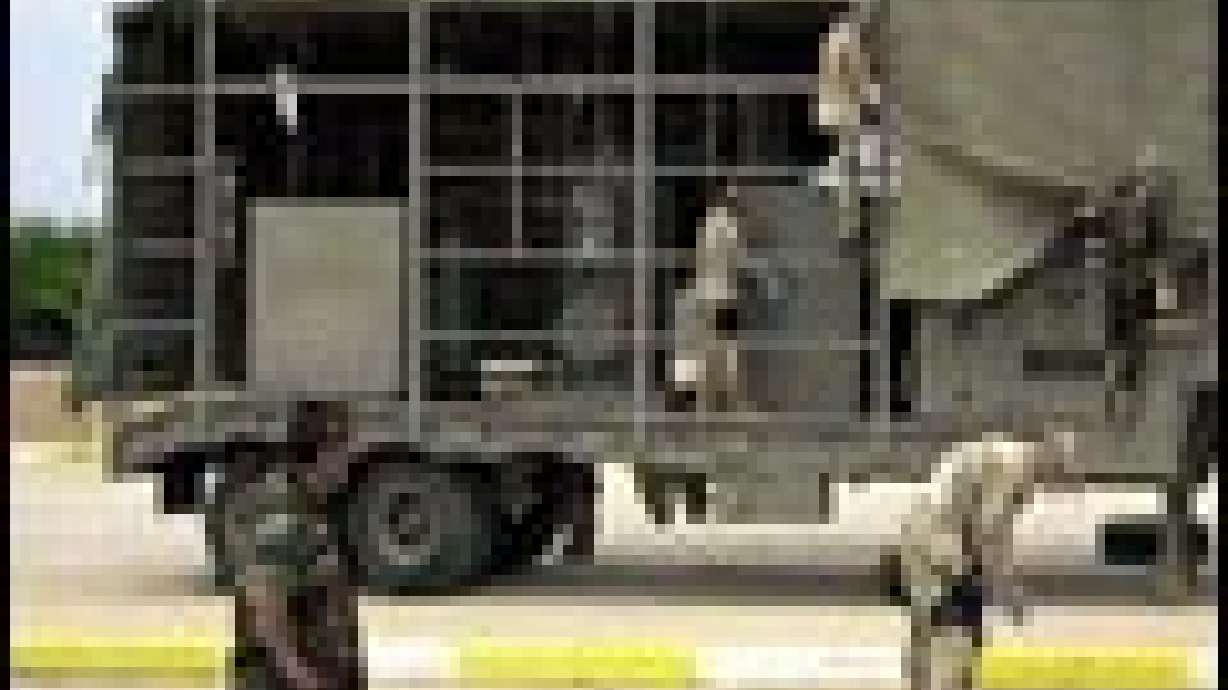Estimated read time: 2-3 minutes
This archived news story is available only for your personal, non-commercial use. Information in the story may be outdated or superseded by additional information. Reading or replaying the story in its archived form does not constitute a republication of the story.
WASHINGTON (AP) -- U.S. forces found another trailer in northern Iraq that appeared to be a mobile biological weapons laboratory, Pentagon officials said Monday.
The trailer was similar to one seized last month that U.S. officials believe may have been a germ weapons workshop for the Iraqis, two officials said, speaking on condition of anonymity.
American troops found the second trailer around the northern city of Mosul Friday night or Saturday morning, one official said. U.S. experts are examining it in Mosul before sending it to the Baghdad airport, where the first trailer is being held, the officials said.
President Bush said he waged war against Saddam Hussein's government to eliminate Iraq's biological and chemical weapons programs. So far, no weapons of mass destruction have been found in Iraq, despite visits to more than 100 suspect sites by U.S. investigators.
Pentagon officials have pointed to the discovery of the first trailer -- seized at a checkpoint near Mosul by Kurdish forces on April 19 -- as possible proof that Iraq indeed had active programs to produce weapons of mass destruction. Saddam and other officials said Iraq destroyed all its chemical and biological weapons in the 1990s.
Weapons experts aren't sure if the latest trailer is connected with the first, but it appears to have many of the same components, one official said.
The first trailer was painted in a military color scheme and mounted on a transporter usually used for tanks, the Pentagon's intelligence chief said last week. The trailer contained a device for fermentation, or growing microbes, and a system to capture exhaust gases from that process, said Stephen Cambone, the undersecretary of defense for intelligence.
American forces made another possible advance in the hunt for weapons of mass destruction during the weekend with the surrender of Dr. Rihab Rashid Taha, a top official in Iraq's biological weapons program called "Dr. Germ" by U.N. inspectors.
If she cooperates with her captors, Taha could provide details about Iraq's germ weapons program. U.N. inspectors have described her as unpleasant and uncooperative, but she told the British Broadcasting Corp. this year that Iraq had ended its biological weapons program.
Meanwhile, U.S. experts are poring through millions of pages of documents found in Iraq, looking for information about the country's suspected biological, chemical and nuclear programs. Investigators have found warehouses full of such documents, the senior Pentagon official said.
(Copyright 2003 by The Associated Press. All Rights Reserved.)








